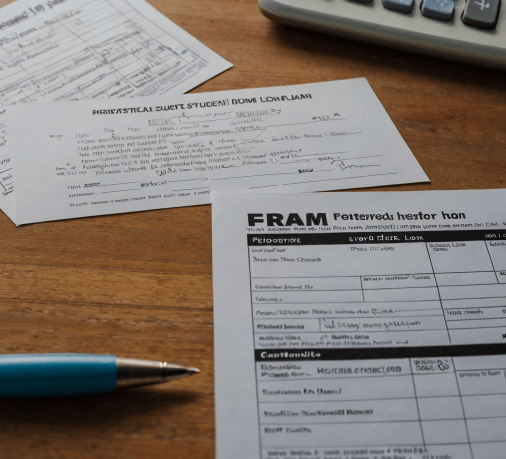You have a great business idea and you’re ready to make it happen. The only catch? You need some start-up funding. Applying for a small business loan might seem intimidating, but it doesn’t have to be! With some preparation and know-how, you can position yourself to get approved.
Let’s talk about how to get your ducks in a row before you fill out that loan application. This will increase your chances of success.
Refine Your Business Plan
Lenders want to see that you have a solid understanding of all aspects of your business. That means you need a business plan that includes:
- A detailed description of your company and business model
- Financial projections for at least the first 3 years of operation
- An analysis of your target market and competitors
- Key personnel bios/resumes
Take the time to make sure your plan is thorough and realistic. This gives lenders confidence you can be successful and pay back the loan.
Choose the Right Lender
With so many options out there, it can be tricky to identify the best lender for your funding needs. When researching lenders, look for these attributes:
- Experience funding startups in your industry
- Flexible qualifications
- Competitive rates and terms
- Strong customer service
Two great places to start your search are small business administration (SBA) lenders and community banks.
Get Your Personal Finances in Order
Lenders will want to know that you’re financially responsible enough to pay back a business loan. Before applying, be sure to:
- Pay down personal debt and maintain a good credit score
- Gather past tax returns, bank statements, etc. to document your financial position
Keeping your personal finances tidy will go a long way in securing a loan!
What You’ll Need to Apply
Alright, you’ve prepped all you can. Now it’s time to compile everything lenders will need to review your application. Having these materials ready in advance will make the process smoother.
Financial Statements
Provide up-to-date versions of the following:
- Personal financial statement summarizing income, debts, assets, etc.
- Personal tax returns for the last 3 years
- Projected profit and loss statements for your business
This gives lenders hard data to back up your loan request amount.
Business Documentation
In addition to your snazzy business plan, gather any other evidence related to your company, such as:
- Incorporation papers or licenses
- Contracts/letters of intent documenting future business
- Collateral you plan to use to secure the loan (property deeds, equipment titles, etc.)
These supplementary docs validate you’re officially up and running.
Deposit Records
Have the last 3 months of statements available for any bank accounts tied to your business. This verifies you have “skin in the game” beyond just the loan.
Navigating the Loan Application
Phew, now for the fun part…filling out all those forms! Here’s what to expect from the small business loan application process.
Lots of Paperwork
Yeap, there’s no escaping paperwork when borrowing money. Standard documents include:
- Loan application outlining your personal/business financial details
- Form requesting permission for lenders to pull your credit history
- Personal guarantee agreeing you are liable for repayment regardless of what happens with the business
Review requirements carefully and provide complete, accurate info.
Potentially Months of Waiting
While application processing times vary, small business loans can take 1-6 months to finalize after submission.
Why so long? Well first, lenders want to carefully analyze:
- Your creditworthiness via personal/business financial reports
- Projections for business profitability and growth
- Collateral to secure the loan
Then, government-backed SBA loans require further approvals once lenders greenlight your application.
See why being prepared is vital? It prevents delays from missing documents down the road.
Expect Counteroffers
Going through the process doesn’t guarantee getting the full loan amount or terms you originally requested.
Based on their risk analysis, lenders may come back with:
- Lower loan amounts
- Different payment timelines (longer or shorter)
- Higher interest rates
Be ready to negotiate if the proposed changes won’t meet your business needs.
The key is understanding lenders want to offer terms allowing you to repay the loan successfully. Work with them to find that middle ground.
Managing Loan Funds Responsibly
Woo hoo, congratulations! After all that, your loan was approved and funds disbursed.
Let’s make sure you use this precious capital wisely so your business thrives.
Align with Your Business Plan
Remember your trusty business plan from the beginning? Now it’s time to follow through on what you outlined!
Analyze if and how each expense ties back to goals/projections from your plan. Only allocate money to pressing needs relevant for your startup stage.
Hire Help to Oversee the Books
Wearing all the hats of a new business owner is challenging. Consider getting a financial manager to handle tasks like:
- Properly documenting loan use for records
- Managing invoices, payroll, etc.
- Creating financial oversight procedures
This ensures funds go towards legitimate business expenses rather than accidental personal purchases.
Prepare for Payback
Loans don’t equal free money! Be proactive in budgeting so you can make payments on time. Set reminders for deadlines to avoid penalties or credit damage if you default.
Keeping payments top of mind from the start prevents bad surprises later!
Let’s Do This!
Starting a small business can be intimidating but so rewarding. Arm yourself with the practical tips we just discussed and you’ll be on your way to securing financing for your big idea!
Remember, think through preparation early then work closely with lenders during the process. This builds trust on both sides setting you up for approval success. Once funded, stick closely to your business plan allocating only towards pressing startup needs.
Here’s to hoping this guide gave you the confidence boost needed to get your loan journey rolling! Reach out anytime if you need motivation or have additional questions. I’m always happy to help new entrepreneurs pursue their dreams. The next big business could be yours!






Leave a Reply